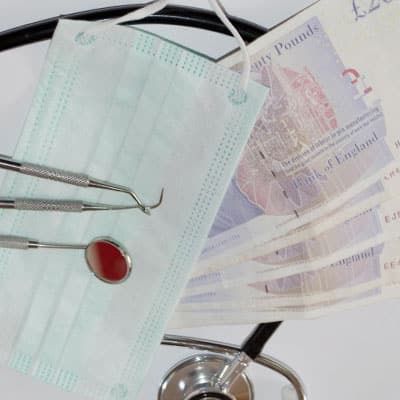I actually remember the time when you could set up practice, register with the local Area Health Authority (who would welcome you with open arms) and just go. Money would come back from the DPB (Dental Practice Board) automatically. OK, I know there were huge holes in this system from the point of view of quality assurance but everyone seemed happy, especially patients and dentists.
Everyone involved in this had an understanding of dentistry, and practices tended to pop up where need was greatest because there was a commercial element involved in deciding where you might invest as individuals. There were very few levels of administration because there was nothing to administer. Dentists worked, patients got treatment and claims for this were made to a central organisation. Simple! However, over recent decades there has been change after change and, in terms of who pays us, the goal posts keep moving.
Who will pay us in future?
A number of blogs and sources have highlighted that things are likely to change again. There are plans to trial a new commissioning system to integrate Clinical Commissioning Groups (CCGs) (which commission GP services) and NHS England ‘to create a joined up, clinically-led commissioning system which delivers seamless, integrated out-of-hospital services based around the needs of local populations’. This looks as though it will place the dental budget in the control of local doctors.
Greater Manchester may be about to trial a joint CCG and NHS England group with no associated name yet. An NHS England document, Proposed next steps towards primary care co-commissioning: an overview, says:
For this year, the scope of primary care co-commissioning is general practice services. The commissioning of dental, community pharmacy and eye health services is more complex than general practice with a different legal framework. As such, our emerging thinking is that it is out of scope for joint and delegated commissioning arrangements in 2015/16. However, we recognise the ambition in some CCGs to take on a greater level of responsibility in these areas and we will be looking into this for future years with full and proper engagement of the relevant professional groups.
On the back of this, the ten local authorities, the 12 clinical commissioning groups (CCGs) for Greater Manchester and NHS England (NHSE) will oversee a £6 billion budget with which to commission health and social care services – including dentistry.
Do doctors and local desk operatives have the experience to make dentistry work in this way?
Good dentistry, not good marks
The worry is that measurement of success in dental practice will depend on meeting key indicators which are not clinical in nature. Patients are not aware of whether they have good treatment as long as it hasn’t hurt, but we know that this is no indication of clinical success. Over-seeing groups will see practices which meet requirements on a number of levels, but not clinical excellence.
At least in the ‘Good old days’, Dental Reference Officers could actually check on individual patients and hold practitioners accountable for their clinical practice.
Dr John Shapter – QCS Expert Dental Contributor




